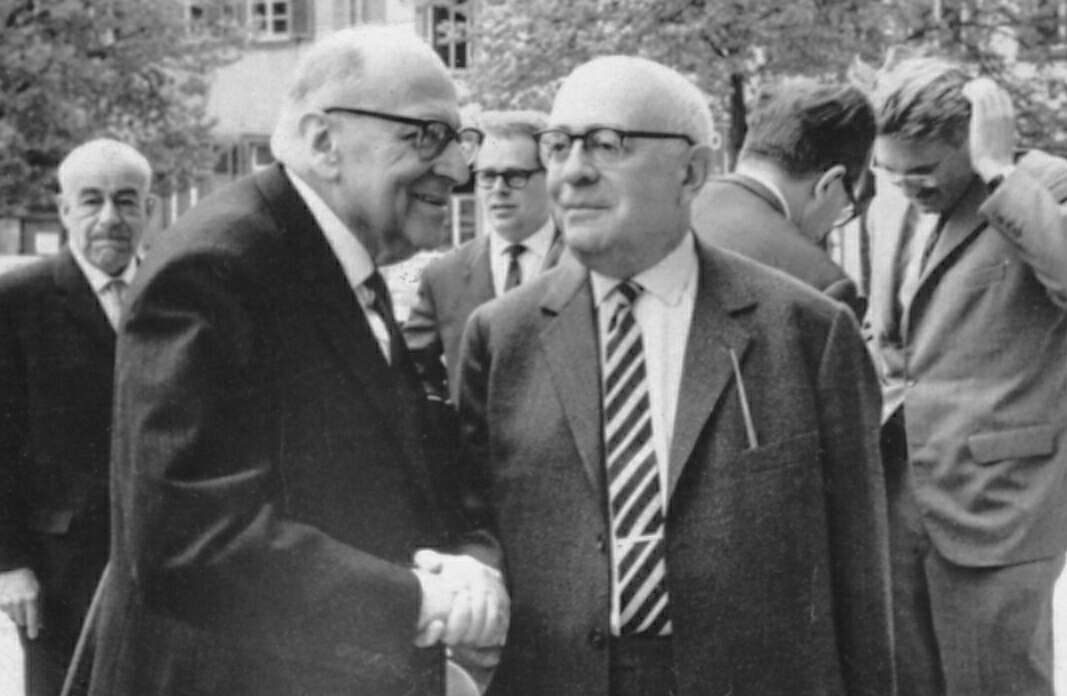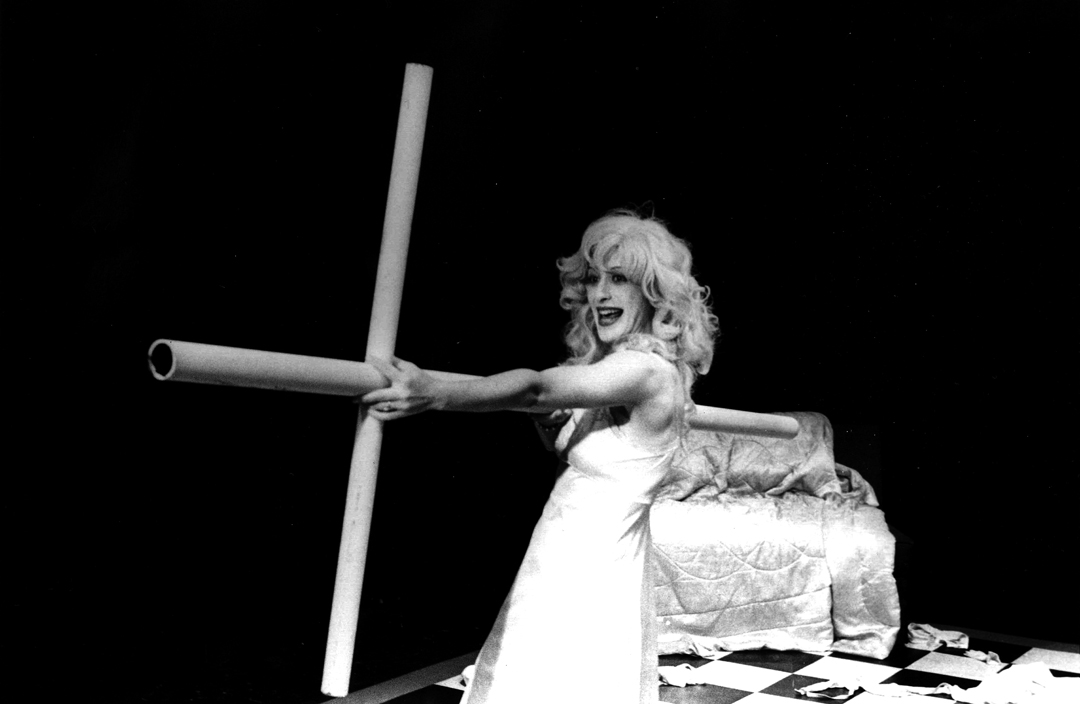|
Giuseppe Chiari (artist-composer-philosopher)
Giuseppe Chiari (26 September 1926–9 May 2007) was an Avant-Garde Florentine conceptual artist and experimental musician active in Neo-Dada circles, specifically the Fluxus art movement. Chiari was a supporter of intermedia work conducted between music, speech, gesture and image. Life and work Giuseppe Chiari was born in Florence, Italy on September 26, 1926. In Florence he devoted himself to studying piano and music composition in parallel with studies in mathematics and engineering (1946–51). He is an exponent and main promoter of the group of ''Florentine artists'', operating from the end of the Second World War to today including Sylvano Bussotti, Daniele Lombardi, Giancarlo Cardini, Albert Mayr, Pietro Grossi, Marcello Aitiani e Sergio Maltagliati. These musicians have experimented the interaction among sound, sign and vision, a synaesthetics of art derived from historical avant-gardes, from Kandinskij to futurism, to Scrjabin and Schoenberg, all the way to Bauhaus. ... [...More Info...] [...Related Items...] OR: [Wikipedia] [Google] [Baidu] |
Avant-Garde
The avant-garde (; In 'advance guard' or ' vanguard', literally 'fore-guard') is a person or work that is experimental, radical, or unorthodox with respect to art, culture, or society.John Picchione, The New Avant-garde in Italy: Theoretical Debate and Poetic Practices' (Toronto: University of Toronto Press, 2004), p. 64 . It is frequently characterized by aesthetic innovation and initial unacceptability.Kostelanetz, Richard, ''A Dictionary of the Avant-Gardes'', Routledge, May 13, 2013 The avant-garde pushes the boundaries of what is accepted as the norm or the '' [...More Info...] [...Related Items...] OR: [Wikipedia] [Google] [Baidu] |
Collage
Collage (, from the french: coller, "to glue" or "to stick together";) is a technique of art creation, primarily used in the visual arts, but in music too, by which art results from an assemblage of different forms, thus creating a new whole. (Compare with pastiche, which is a "pasting" together.) A collage may sometimes include magazine and newspaper clippings, ribbons, paint, bits of colored or handmade papers, portions of other artwork or texts, photographs and other found objects, glued to a piece of paper or canvas. The origins of collage can be traced back hundreds of years, but this technique made a dramatic reappearance in the early 20th century as an art form of novelty. The term ''Papier collé'' was coined by both Georges Braque and Pablo Picasso in the beginning of the 20th century when collage became a distinctive part of modern art. History Early precedents Techniques of collage were first used at the time of the invention of paper in China, around 20 ... [...More Info...] [...Related Items...] OR: [Wikipedia] [Google] [Baidu] |
Italian Conceptual Artists
Italian(s) may refer to: * Anything of, from, or related to the people of Italy over the centuries ** Italians, an ethnic group or simply a citizen of the Italian Republic or Italian Kingdom ** Italian language, a Romance language *** Regional Italian, regional variants of the Italian language ** Languages of Italy, languages and dialects spoken in Italy ** Italian culture, cultural features of Italy ** Italian cuisine, traditional foods ** Folklore of Italy, the folklore and urban legends of Italy ** Mythology of Italy, traditional religion and beliefs Other uses * Italian dressing, a vinaigrette-type salad dressing or marinade * Italian or Italian-A, alternative names for the Ping-Pong virus, an extinct computer virus See also * * * Italia (other) * Italic (other) * Italo (other) * The Italian (other) * Italian people (other) Italian people may refer to: * in terms of ethnicity: all ethnic Italians, in and outside of Italy * in t ... [...More Info...] [...Related Items...] OR: [Wikipedia] [Google] [Baidu] |
Italian Contemporary Artists
Italian(s) may refer to: * Anything of, from, or related to the people of Italy over the centuries ** Italians, an ethnic group or simply a citizen of the Italian Republic or Italian Kingdom ** Italian language, a Romance language *** Regional Italian, regional variants of the Italian language ** Languages of Italy, languages and dialects spoken in Italy ** Italian culture, cultural features of Italy ** Italian cuisine, traditional foods ** Folklore of Italy, the folklore and urban legends of Italy ** Mythology of Italy, traditional religion and beliefs Other uses * Italian dressing, a vinaigrette-type salad dressing or marinade * Italian or Italian-A, alternative names for the Ping-Pong virus, an extinct computer virus See also * * * Italia (other) * Italic (other) * Italo (other) * The Italian (other) * Italian people (other) Italian people may refer to: * in terms of ethnicity: all ethnic Italians, in and outside of Italy * in ... [...More Info...] [...Related Items...] OR: [Wikipedia] [Google] [Baidu] |
Postmodern Artists
Postmodernism is an intellectual stance or mode of discourseNuyen, A.T., 1992. The Role of Rhetorical Devices in Postmodernist Discourse. Philosophy & Rhetoric, pp.183–194. characterized by skepticism toward the " grand narratives" of modernism, opposition to epistemic certainty or stability of meaning, and emphasis on ideology as a means of maintaining political power. Claims to objective fact are dismissed as naïve realism, with attention drawn to the conditional nature of knowledge claims within particular historical, political, and cultural discourses. The postmodern outlook is characterized by self-referentiality, epistemological relativism, moral relativism, pluralism, irony, irreverence, and eclecticism; it rejects the "universal validity" of binary oppositions, stable identity, hierarchy, and categorization. Initially emerging from a mode of literary criticism, postmodernism developed in the mid-twentieth century as a rejection of modernism and has been observe ... [...More Info...] [...Related Items...] OR: [Wikipedia] [Google] [Baidu] |
Mass Media Theorists
Mass is an intrinsic property of a body. It was traditionally believed to be related to the quantity of matter in a physical body, until the discovery of the atom and particle physics. It was found that different atoms and different elementary particles, theoretically with the same amount of matter, have nonetheless different masses. Mass in modern physics has multiple definitions which are conceptually distinct, but physically equivalent. Mass can be experimentally defined as a measure of the body's inertia, meaning the resistance to acceleration (change of velocity) when a net force is applied. The object's mass also determines the strength of its gravitational attraction to other bodies. The SI base unit of mass is the kilogram (kg). In physics, mass is not the same as weight, even though mass is often determined by measuring the object's weight using a spring scale, rather than balance scale comparing it directly with known masses. An object on the Moon would weigh less t ... [...More Info...] [...Related Items...] OR: [Wikipedia] [Google] [Baidu] |
2007 Deaths
This is a list of deaths of notable people, organised by year. New deaths articles are added to their respective month (e.g., Deaths in ) and then linked here. 2022 2021 2020 2019 2018 2017 2016 2015 2014 2013 2012 2011 2010 2009 2008 2007 2006 2005 2004 2003 2002 2001 2000 1999 1998 1997 1996 1995 1994 1993 1992 1991 1990 1989 1988 1987 See also * Lists of deaths by day The following pages, corresponding to the Gregorian calendar, list the historical events, births, deaths, and holidays and observances of the specified day of the year: Footnotes See also * Leap year * List of calendars * List of non-standard ... * Deaths by year {{DEFAULTSORT:deaths by year ... [...More Info...] [...Related Items...] OR: [Wikipedia] [Google] [Baidu] |
1926 Births
Events January * January 3 – Theodoros Pangalos (general), Theodoros Pangalos declares himself dictator in Greece. * January 8 **Abdul-Aziz ibn Saud is crowned King of Kingdom of Hejaz, Hejaz. ** Bảo Đại, Crown Prince Nguyễn Phúc Vĩnh Thuy ascends the throne, the last monarch of Vietnam. * January 12 – Freeman Gosden and Charles Correll premiere their radio program ''Sam 'n' Henry'', in which the two white performers portray two black characters from Harlem looking to strike it rich in the big city (it is a precursor to Gosden and Correll's more popular later program, ''Amos 'n' Andy''). * January 16 – A BBC comic radio play broadcast by Ronald Knox, about a workers' revolution, causes a panic in London. * January 21 – The Belgian Parliament accepts the Locarno Treaties. * January 26 – Scottish inventor John Logie Baird demonstrates a mechanical television system at his London laboratory for members of the Royal Institution and a report ... [...More Info...] [...Related Items...] OR: [Wikipedia] [Google] [Baidu] |
Avant-garde
The avant-garde (; In 'advance guard' or ' vanguard', literally 'fore-guard') is a person or work that is experimental, radical, or unorthodox with respect to art, culture, or society.John Picchione, The New Avant-garde in Italy: Theoretical Debate and Poetic Practices' (Toronto: University of Toronto Press, 2004), p. 64 . It is frequently characterized by aesthetic innovation and initial unacceptability.Kostelanetz, Richard, ''A Dictionary of the Avant-Gardes'', Routledge, May 13, 2013 The avant-garde pushes the boundaries of what is accepted as the norm or the '' [...More Info...] [...Related Items...] OR: [Wikipedia] [Google] [Baidu] |
Experimental Theatre
Experimental theatre (also known as avant-garde theatre), inspired largely by Richard Wagner, Wagner's concept of Gesamtkunstwerk, began in Western theatre in the late 19th century with Alfred Jarry and his Ubu Roi, Ubu plays as a rejection of both the age in particular and, in general, the dominant ways of writing and producing plays. The term has shifted over time as the mainstream theatre world has adopted many forms that were once considered radical. Like other forms of the avant-garde, it was created as a response to a perceived general cultural crisis. Despite different political and formal approaches, all avant-garde theatre opposes bourgeois theatre. It tries to introduce a different use of language and the Human body, body to change the mode of perception and to create a new, more active relation with the audience. Relationships to audience Famed experimental theatre director and playwright Peter Brook describes his task as building "… a necessary theatre, one in which ... [...More Info...] [...Related Items...] OR: [Wikipedia] [Google] [Baidu] |
Intermedia
Intermedia is an art theory term coined in the mid-1960s by Fluxus artist Dick Higgins to describe various interdisciplinarity art activities that occur between genres, beginning in the 1960s. It was also used by John Brockman to refer to works in expanded cinema that were associated with Jonas Mekas' Film-Makers’ Cinematheque. Gene Youngblood also described intermedia, beginning in his ''Intermedia'' column for the Los Angeles Free Press beginning in 1967 as a part of a global network of multiple media that was expanding consciousness. Youngblood gathered and expanded upon intermedia ideas from this series of columns in his 1970 book ''Expanded Cinema'', with an introduction by Buckminster Fuller. Over the years, intermedia has been used almost interchangeably with multi-media and more recently with the categories of digital media, technoetics, electronic media and post-conceptualism. Characteristics The areas such as those between drawing and poetry, or between painting a ... [...More Info...] [...Related Items...] OR: [Wikipedia] [Google] [Baidu] |
Happening
A happening is a performance, event, or situation art, usually as performance art. The term was first used by Allan Kaprow during the 1950s to describe a range of art-related events. History Origins Allan Kaprow first coined the term "happening" in the spring of 1959 at an art picnic at George Segal's farm to describe the art pieces that were going on. The first appearance in print was in Kaprow's famous "Legacy of Jackson Pollock" essay that was published in 1958 but primarily written in 1956. "Happening" also appeared in print in one issue of the Rutgers University undergraduate literary magazine, ''Anthologist''. The form was imitated and the term was adopted by artists across the U.S., Germany, and Japan. Jack Kerouac referred to Kaprow as "The Happenings man", and an ad showing a woman floating in outer space declared, "I dreamt I was in a happening in my Maidenform brassiere". Happenings are difficult to describe, in part because each one is unique. One definition com ... [...More Info...] [...Related Items...] OR: [Wikipedia] [Google] [Baidu] |





